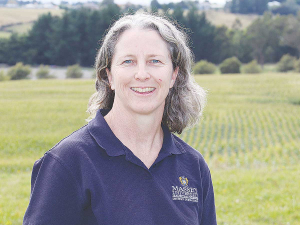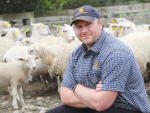Demand for expertise in sustainable nutrient management, environmental planning and improved freshwater outcomes has seen Massey University's range of agricultural short courses pass the 4300-enrolment mark.
Massey says the courses are tailored to the needs of science, industry, policy and regulatory bodies concerned with primary production.
The first courses were in sustainable nutrient management and soil science, but other courses have been added along the way, such as Agricultural Green House Gas Emissions and Management and Farm Dairy Effluent: System Design and Management.
Senior research officer within the School of Agriculture and Environment, Dr Lucy Burkitt, says the popularity of the courses shows the significant contribution the university has made to improved environment management in New Zealand.
"There was a gap in people qualified in these areas, so we went about filling that gap. Now, we're sending people back to farms with training that will improve the sustainability of agriculture," she says.
Professor of dairy production systems Danny Donaghy, who has been instrumental in developing one of the courses, says the shorter format of the courses are part of their appeal.
"A lot of the people who enroll in our courses are working full time, so travelling to Palmerston North for a face-to-face course just isn't feasible for them. These course offer them relevant learning that can complement their current employment," he says.
Emeritus Professor Mike Hedley has been involved in initiating and continuing the delivery of Massey's short course offerings over the years. He says what's taught in the courses has become an essential skill base for New Zealand farmers.
"If New Zealand farmers are to meet the agreed future greenhouse gas emissions and freshwater regulatory requirements that industry bodies and government have recently agreed on, they need nutrient management and farm environmental planning skills," he says.











